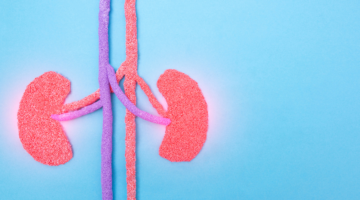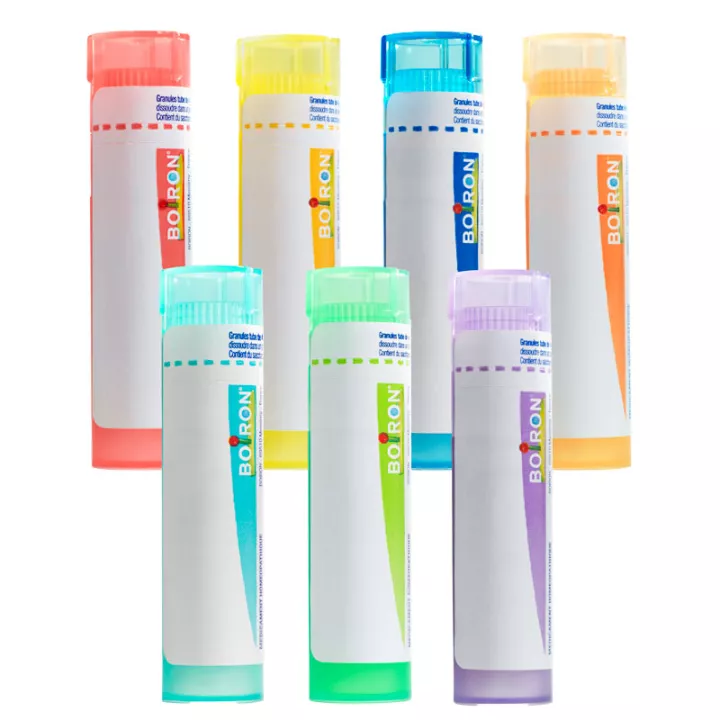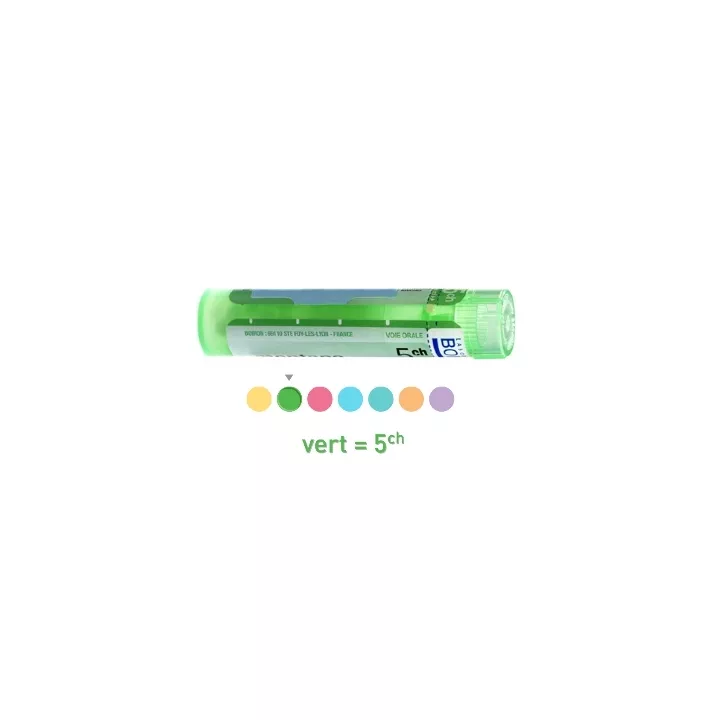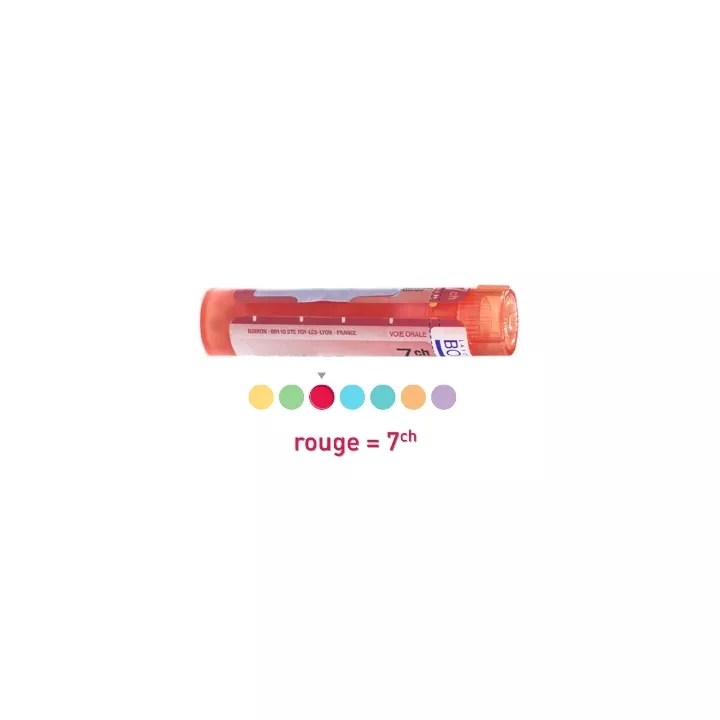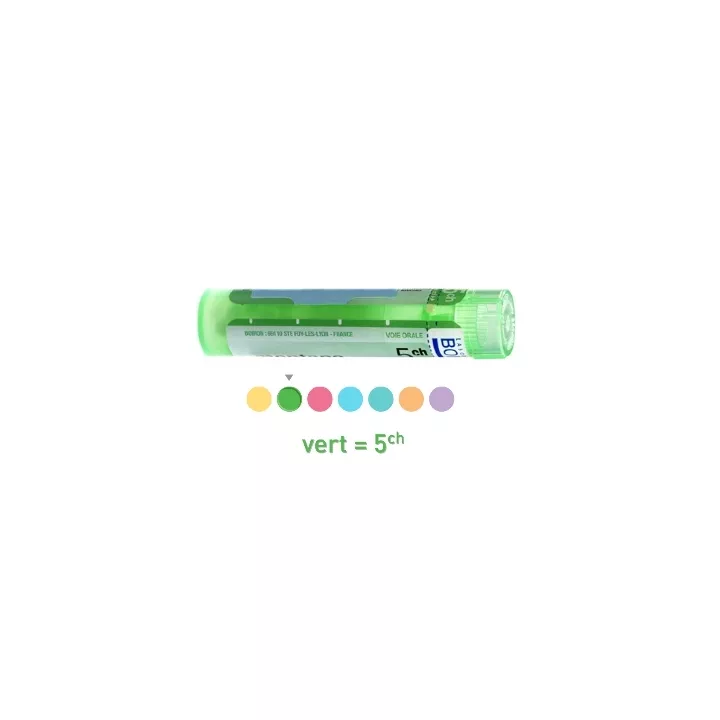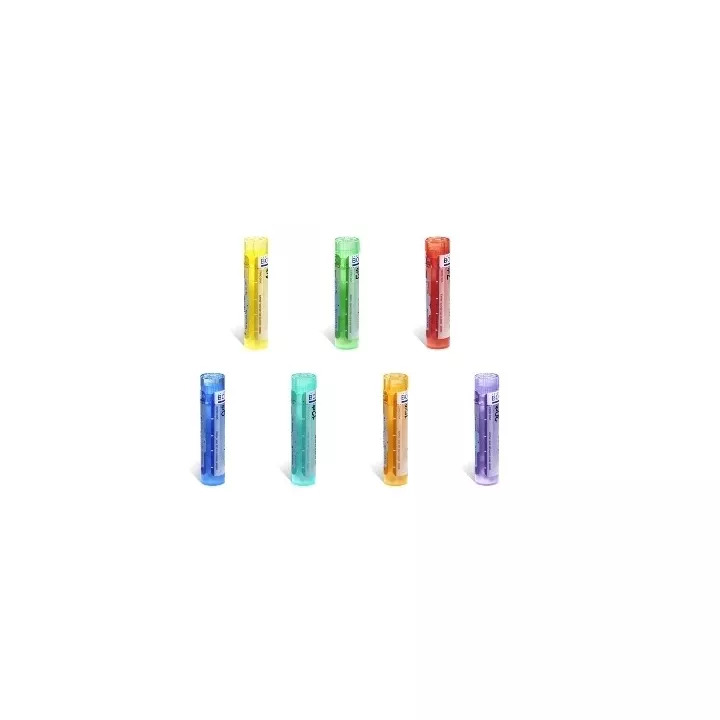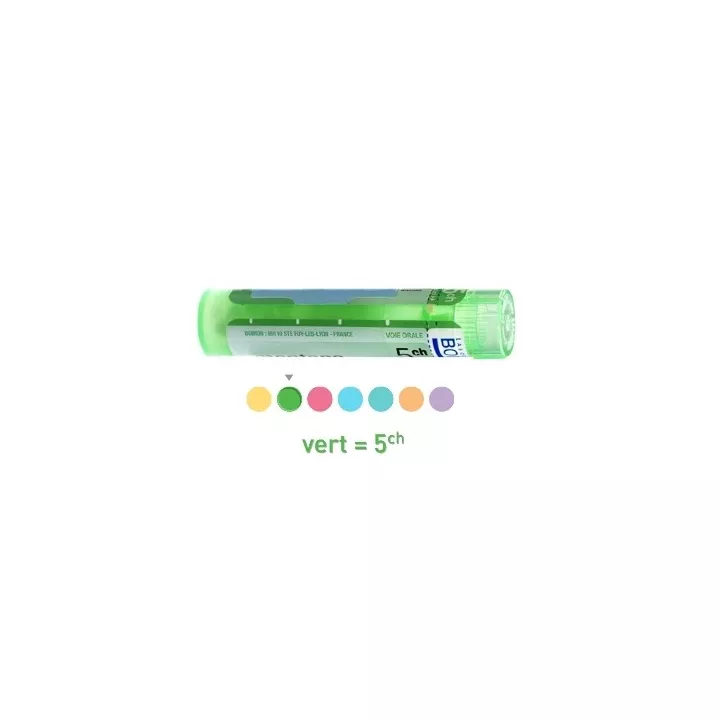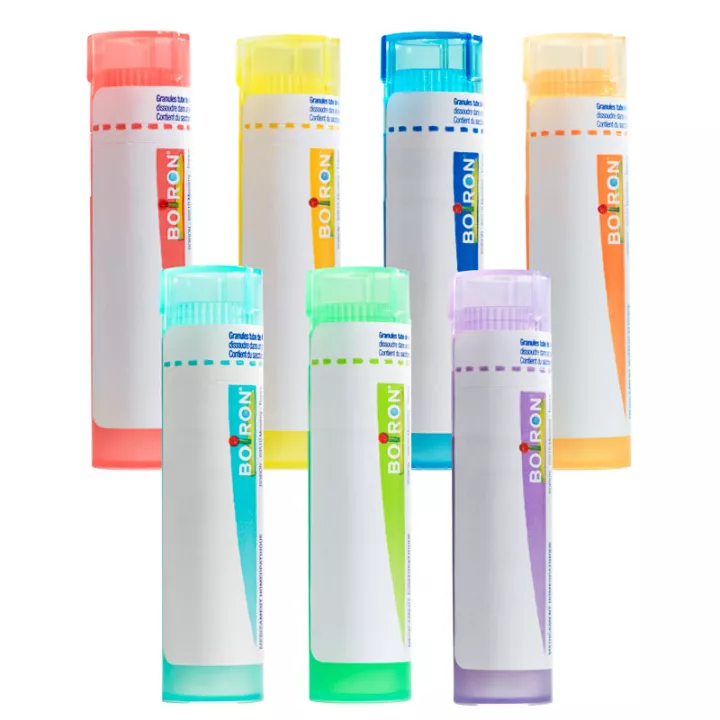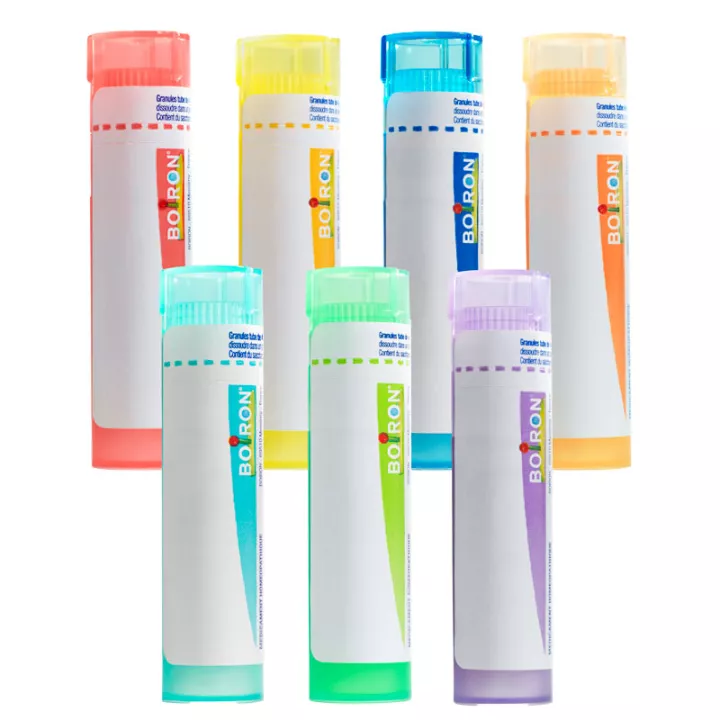Helleborus Niger in Homeopathy: Properties and Therapeutic Applications
Helleborus Niger 5CH, 7CH, 9CH, 15CH Boiron homeopathic granules
Helleborus Niger offers a natural, effective treatment option for neurological disorders and water retention problems. Available in several forms and dilutions, it allows practitioners to tailor it to individual needs, offering targeted, personalized therapy. As always, it is essential to consult a qualified health professional to determine the most appropriate treatment and ensure the safe and effective use of this remedy.
Indications and dosage
Homeopathic medicines can be used for a variety of symptoms, so it is not possible to determine the indications and dosage of a specific preparation.
The homeopathic physician selects the dilution and dosage appropriate to the patient's condition and characteristic symptoms.
Helleborus Nige Homeopathic use in Urology and Behavioural Disorders
Therapeutic indications
Helleborus Niger, available as homeopathic granules from Boiron in dilutions from 5CH to 1000K, is frequently used for its action in urology and in the treatment of behavioral disorders.
Urology applications
- Acute massive nephritis: Helleborus Niger is indicated to help treat acute inflammation of the kidney, characterized by massive nephritis, helping to relieve associated symptoms such as pain and inflammation.
Use for Behavioural disorders
- Profound depression and slowness: This remedy is used to treat severe forms of depression, characterized by mental and physical slowness, where the patient may appear obnubilated.
- Obnubilation and Manic-Depressive Melancholia: It is also beneficial for people suffering from manic-depressive melancholia, offering mood-stabilizing support.
- Post-menopausal depression: Helleborus Niger can be useful for women experiencing depressive symptoms following thecessation of menstruation.
- Nervous system intoxication: This medicine is frequently prescribed for cases of nervous system intoxication, manifested by spasms, irritability and the after-effects of diseases affecting the CNS, such as viral infections or other neurological pathologies.
Properties and benefits
In homeopathy, Helleborus Niger is recognized for its anti-inflammatory properties, particularly on the kidneys, and its beneficial effects on heavy psychological states. It helps improve the patient's general condition by acting on both physical and mental symptoms.
Other therapeutic applications
Helleborus Niger is used in homeopathy to treat many symptoms and conditions, including
- Neurological disorders: Effective for symptoms such as lethargy, torpor and impaired concentration. It is often used in patients showing signs of depression or cognitive decline.
- Diuretic conditions: Helps promote urine excretion, useful in cases of water retention and swelling.
- Symptoms of Meningitis: Used to relieve symptoms of meningitis, such as stiff neck, increased sensitivity and severe headaches.
The recommended dosage is 5 Helleborus Niger 7CH granules, taken three times a day. It is advisable to take the granules away from meals for better absorption and efficacy. As always, this dosage may need to be adapted by a healthcare professional, depending on the severity of symptoms and the patient's response to treatment.
Directions for use
Twist the tube to drop the desired number of granules into the cap, then place the granules under the tongue.
Do not touch the homeopathic granules with your fingers.
The globules in single-dose tubes are absorbed in a single dose, allowing them to dissolve slowly under the tongue. If no dose is available, take 10 granules of the same dilution.
For optimum efficacy, we recommend taking 5 Helleborus Niger granules in the chosen dilution, as required or as recommended by a healthcare professional. Granules should be taken away from meals to ensure optimal absorption.
Use a mint-free toothpaste (such as Homéodent Boiron, which is compatible with homeopathic granules).
How long does it take to see an improvement with Helleborus Niger?
Results may vary according to the individual and the severity of symptoms. Improvement can be observed after a few weeks of regular use, especially for physical symptoms. Behavioural disorders may require more prolonged treatment before significant improvements are seen.
Are there any side effects to using Helleborus Niger?
Helleborus Niger is generally well tolerated, and side effects are rare in homeopathy. However, in the event of unusual reactions, it is important to consult a health professional.
Can Helleborus Niger be used in conjunction with other treatments?
Yes, Helleborus Niger can be used to complement other medical treatments. Consult a healthcare professional to ensure there are no interactions and to optimize symptom management.
Is Helleborus Niger suitable for all ages?
Helleborus Niger can be used by people of all ages. However, consultation with a healthcare professional is recommended to adjust dosage and confirm suitability, particularly for children and the elderly.
Packaging and contents
Helleborus Niger, also known as Christmas rose, is a medicinal plant used in homeopathy for its neurological and diuretic properties. This strain, listed in the French and European Pharmacopoeia and registered under number EH00442, is available in a variety of forms, including doses, tubes and magistral preparations. This article explores the use of Helleborus Niger in homeopathy, its preparation and therapeutic benefits.
Origin and properties
Helleborus Niger is a plant native to the mountainous regions of Europe. It is traditionally used for its effects on the central nervous system and its diuretic properties, making this remedy suitable for treating conditions associated with these systems.
Forms of preparation
Doses and tubes: Helleborus Niger is available as homeopathic granules in various dilutions, allowing precise adjustment of treatment:
- Doses: 9 CH, 15 CH, 30 CH
- Tubes: 5 CH, 7 CH, 9 CH, 15 CH, 30 CH
Magistral preparations: For further customization, Helleborus Niger can be prepared in Hahnemannian dilutions from 3 CH, as well as in Korsakovian dilutions up to 10,000K. This variety of preparations meets the specific needs of each patient.
Precautions for use
Warning
Contains sacchararose.
Keep homeopathic medicines away from light, heat and moisture.
Giving homeopathic granules to babies and children
Homeopathic granules should be dissolved in 100ml of water. Granules take a long time to dissolve, so it's best to prepare your mixture in advance.
Homeopathy and pregnancy
Homeopathic medicines have no chemical toxicity, no contraindications, no interaction with other drugs, and no adverse effects linked to the quantity of product ingested. Pregnant women can use homeopathic remedies without any known risk to themselves or their unborn child, but it is advisable to seek advice.
Frequency of homeopathic use
For acute conditions, homeopathic remedies should be taken every hour until symptoms improve. From then on, they should be taken 3 or 4 times a day, spaced out, and then gradually stopped.
For chronic conditions, low-dilution remedies (> 9CH) should be taken 1 or 2 times a day, while basic remedies should be taken once a week, or even once a month. This decision is left to the homeopath.
What to do if there is no improvement within 24 hours
Certain pathologies cannot be treated with homeopathy simply by self-medication. Their seriousness requires medical advice, which can be given by a homeopathic doctor. This doctor will judge whether your condition can be treated with homeopathy alone, or whether your treatment needs to be supplemented with allopathic medicine.
